Because You Matter Too - How to Take Care of Your Health in the UK
ENGLISH
7 min read


Maybe it's time to talk about health - but seriously, without beating around the bush. Let's skip those medical, specialist tips that often give you a headache. Today, we want to present you with simple, realistic steps you can take right now. Because, as you know, life doesn't slow down. Between work, home, looking after the kids, and searching for keys (again!), it's easy to get overwhelmed and simply lose track of what your body suffers the most from.
…because you deserve it
It's worth stopping for a moment and looking at yourself with attention and care. No excuses like: "I'll take care of my health when I go back home," or "when the kids move out, then I'll look after myself"... You're here - in the West Midlands - often far from relatives, friends, and what's familiar, often relying only on yourself and your loved ones. You're building a life abroad, and in all of this, your health isn't a luxury, it's a foundation.
You don't have to be an expert to start taking care of your body. You don't need to earn more or have more time. Small steps have great power. It's about doing something good for yourself and your body every day (without exceptions!) - even if it's just a walk, a moment of silence, choosing a healthier meal, or signing up for check-ups. Because you deserve to feel good - not "someday," not "when everything settles down." Only now. Right where you are.
What's holding you back?
But let's take it step by step - first, it's worth understanding what is really the reason, or the obstacle, in fully taking care of your own health. Why do you put it off for later? Why do you ignore, for example, a nagging back pain, or skip simple tests?
Here are some of our assumptions:
Language barrier: Do you sometimes feel like you're playing charades in the doctor's office, trying to describe your symptoms or understand the recommendations? You're not alone in this. Many migrants struggle with communication with medical staff. And it's not some silly thing - as research shows, it's a real obstacle to accessing healthcare.
This whole NHS!: Navigating the British healthcare system is like putting together a puzzle - only the box contains pieces from several different sets... Family doctors, referrals, appointments, waiting - does it sound familiar? It's undeniable, it can be frustrating. Understanding all these rules and dependencies requires considerable patience, as well as familiarity - linguistic, cultural, and formal.
Health-related traumas: For many of us, previous contact with healthcare (even in our home country) wasn't a positive experience. Neglect, lack of understanding, exaggerated diagnoses... Studies suggest that such past experiences can cause anxieties that make us avoid seeking help in the present.
Lack of time: Juggling work, family, and daily responsibilities often leaves no room for even a moment to breathe. In this rush, it's easy to forget about yourself.
Children are more important: …and you ignore yourself, forgetting that it's your life too? You begrudge spending your hard-earned pounds on yourself or "wasting" a day off visiting medical facilities… But children - that’s different!
Not enough earnings: …or maybe, when you get that desired promotion or more "shifts," you'll finally allow yourself the medical care you need? For now - you prefer to use cheaper services during your vacation back home, praying that you'll endure that toothache or chronic indigestion… instead of dealing with it locally and enjoying your vacation!
So - what about those small steps…?
Exactly, enough talking about obstacles - it's time to move forward! And the good news is that you don't have to turn your life upside down, make grand declarations or sacrifices, to take those small steps towards big change.
To start - here are five ways to improve your well-being. Simple and proven:
Connection. Maintaining contact with loved ones and building new acquaintances will give you strength and a sense of belonging. What's more - there is scientific evidence that satisfying relationships genuinely improve your health! Drop by the European’s Welfare Association or R.U.D.A. - you won't need to explain anything from the beginning there!
Activity. No, it's not about the gym at dawn. A walk, dancing in the kitchen, walking to the shops is enough. For the body, but also for the mind. Check out Think Active - you'll find local, often free activities there that might positively surprise you.
Mindfulness. Life rushes by, but you don't have to go with it. Stop, take a deep breath, notice what's happening here and now. Mindfulness isn't an Instagram trend - it's, for example, sitting on the sofa with a cup of tea during a two-minute break from everything.
Learning. New skills, both linguistic and from other practical fields, are not just about a better CV. They bring more self-confidence and new opportunities, including in the field of healthcare. Because development is more than just survival, which often causes stress in the body. The European’s Welfare Association and R.U.D.A. have excellent courses (supplementary weekend schools for children) and specific courses (linguistic) for people from Eastern Europe - it's worth taking a look.
Giving. Helping others gives a sense of purpose. Again - science is increasingly showing that voluntary acts of kindness contribute to the improvement of overall physical health! And by the way - you gain friends and experience. The European’s Welfare Association and R.U.D.A are always looking for volunteers with heart and a willingness to act.
Health support
NHS - Your right, your access: It's worth remembering this - most of us have the right to use NHS services. And the best part - the NHS website offers information in many languages! This really makes things easier and clears up many doubts. Take a look, check it out, use what you're entitled to. Knowledge and awareness of your rights are key, as is support. You're not alone here - you can learn from others.
Heal health traumas: What has been does not have to define what will be. You have the right to care, understanding, support, and higher quality services. If you don't feel you have the strength to advocate for this - contact the European’s Welfare Association, who will help you find the appropriate support. Platforms such as Psychology Today or the UK Council for Psychotherapy can also help you find a therapist in your area with whom you can truly connect - without language barriers and misunderstandings. Yellow Scarf offers support for people with addictions.
Or maybe private? For some, private healthcare is a way to get faster appointments, doctors who speak Polish/ Romanian, or simply more consistent, predictable care. And that's OK too - health is a personal matter, so everyone chooses what works best for them. If you don't know how to go about it - ask your fellow countrymen who have lived in the UK longer than you.
For the truly busy
These few easy tricks will allow you to eliminate the excuse of lack of time once and for all:
Micro-breaks. You don't have to escape to the mountains to reset. A few minutes of breathing, looking out the window, a few seconds of stretching, a short walk around the house - studies show that it really works. Your body and mind will thank you.
Movement "snacks". Don't have time for the gym? No problem! A series of squats while cooking, a few jumping jacks with your child, a brisk walk to work - every type of movement counts. Short bursts of activity can work wonders.
Connection with your roots. Our culture, language, traditions - connecting with what is known and close builds a sense of identity and brings comfort. Speak your native language as much as you can, listen to your favorite childhood music, cherish your customs - it's not sentimentality, it's the foundation of psychophysical health in emigration.
Just sleep. Good sleep at the earliest possible time is a reset for the whole body.
Digital detox. Take a break from scrolling. A smartphone can be like a black hole - it sucks you in. Log out for a moment, silence notifications, and you'll see how much time you gain!
An increasingly better diet. You don't have to immediately give up everything unhealthy, but whenever you have the opportunity, choose, for example, a workout instead of coffee, replace a glass of evening wine with a herbal infusion, cook instead of frying, buy a salad instead of ordering fast food. Remember, you are what you eat!
Shift work and low wages
Many of us work in difficult conditions, which affects our health. Studies consistently show that shift work and night work can increase the risk of serious health problems. In addition, low wages cause stress. But you can take action at any time to protect yourself:
Preparing meals: cook at home so as not to further burden your body with highly processed food.
Proper lighting: use natural light whenever you can.
Social life and free time: despite fatigue, try not to give up relationships and favorite activities.
The Power of Trade Unions: TUC Resources supports workers' rights. You have the right to translators, clear explanations, and information in your language. The European Welfare Association offers advocacy services.
Immigration matters - The European Welfare Association will assist with immigration issues, being an organisation registered with the Immigration Advice Authority.
And finally - find your golden mean
You don't have to blindly follow every piece of advice. It's about something simpler - finding what works for you and brings real change. Sometimes this means stepping out of your comfort zone, but that's where something good might be waiting.
Combine your experiences with the opportunities that the UK offers. Use the tools you have at hand - and do it your own way.
Remember: taking care of yourself is not a luxury, it's a responsibility. When you are strong, everyone around you benefits. And even five minutes for yourself is an investment in a better tomorrow. Because you matter too. Maybe even the most!
Start where you are. Now. And do it on your own terms.
Sources:
McKenzie, K., & Bhui, K. (2021) Migration, ethnicity, race and mental health, World Psychiatry, 20(3), 361–376.
Lim, M. H., et al. (2020). Loneliness over time: predictors and pathways to depression. Psychological Medicine, 50(15), 2568–2576.
Armitage, C. J., & Conner, M. (2020). Social cognition models and health behaviours: a narrative review. Psychology & Health, 35(11), 1243–1276.
Get the latest from our newsletter!
© 2025. All rights reserved
Website Terms | Privacy Policy | Accessibility | Do Not Sell My Information
Funded by




